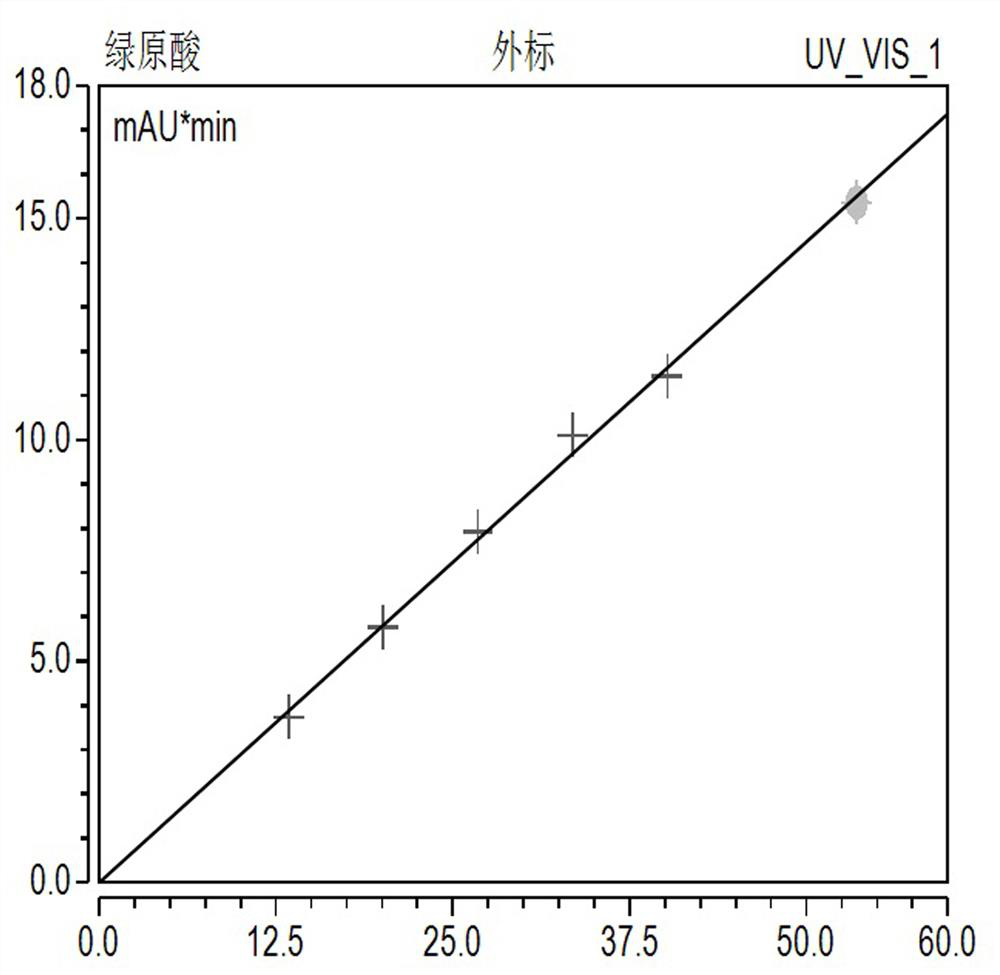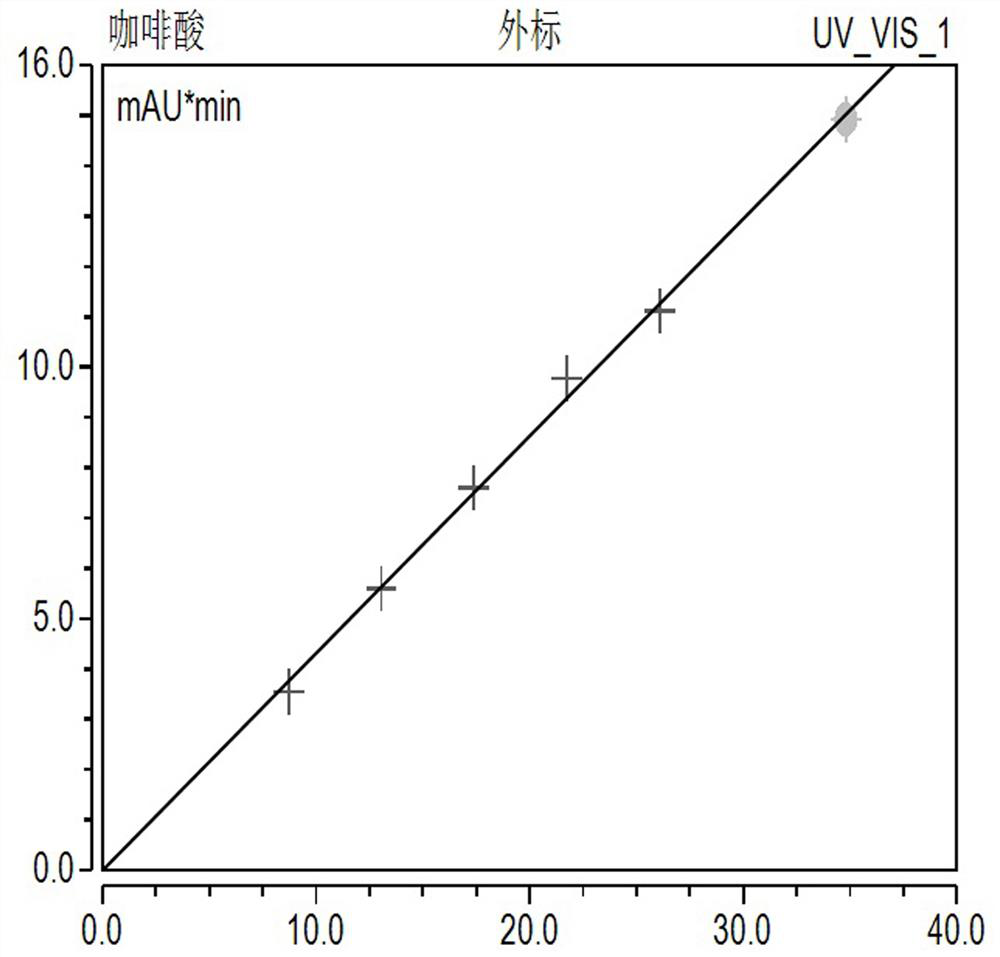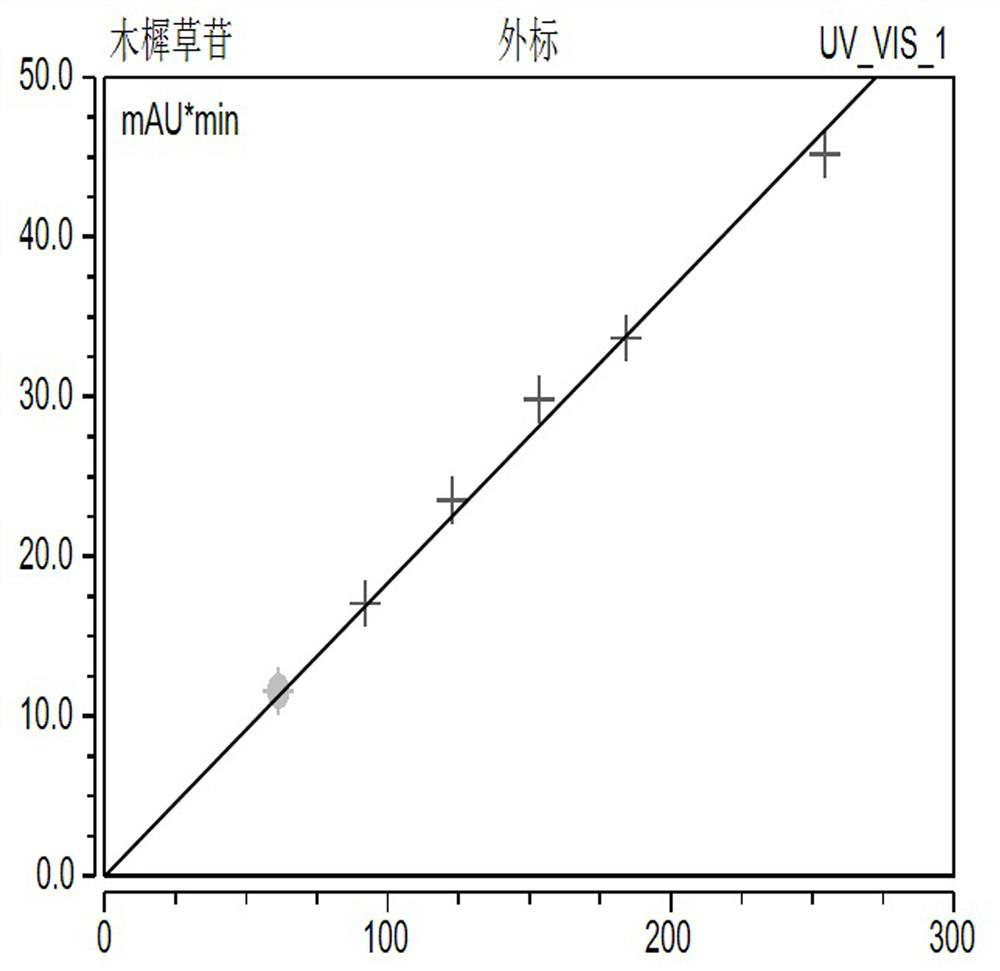Method for Determination of Chlorogenic Acid, Caffeic Acid and Luteolin Contents in C.
A technology of luteolin and chlorogenic acid, which is used in measuring devices, instruments, scientific instruments and other directions to achieve the effects of saving resource loss, accurate measurement, comprehensive and effective evaluation and control
- Summary
- Abstract
- Description
- Claims
- Application Information
AI Technical Summary
Problems solved by technology
Method used
Image
Examples
Embodiment 1
[0024] Using the above-mentioned method of one test and multiple evaluations to determine the content of chlorogenic acid, caffeic acid and luteolin in C. chinensis, 10 batches of C. cicadae were tested. The specific determinations are as follows:
[0025] 1 Experimental materials, instruments and reagents
[0026] 1.1 Experimental materials
[0027] See Table 2 for the harvesting area and date of the Chinese herbal medicines, and it was identified by Professor Wei Songji of Guangxi University of Traditional Chinese Medicine as a plant of the genus A. Ixeridium chinense (Thunb.) Tzvel.) Whole plant.
[0028]
[0029] 1.2 Instruments
[0030] U3000 high-performance liquid chromatography (Thermo Fisher, USA); 1260 high-performance liquid chromatography (Agilent, USA); column CAPCELLPAK TYPEⅡSIZE C18 (4.6mmI.D.×250mm, 5µm), AgilentEclipse plus C18 (4.6×250mm, 5µm), Waters Atlantis T3 (4.6×250mm, 5µm); XS-205Du electronic analytical balance (Switzerland METTLER TOLEDO company)...
PUM
 Login to View More
Login to View More Abstract
Description
Claims
Application Information
 Login to View More
Login to View More - R&D
- Intellectual Property
- Life Sciences
- Materials
- Tech Scout
- Unparalleled Data Quality
- Higher Quality Content
- 60% Fewer Hallucinations
Browse by: Latest US Patents, China's latest patents, Technical Efficacy Thesaurus, Application Domain, Technology Topic, Popular Technical Reports.
© 2025 PatSnap. All rights reserved.Legal|Privacy policy|Modern Slavery Act Transparency Statement|Sitemap|About US| Contact US: help@patsnap.com



